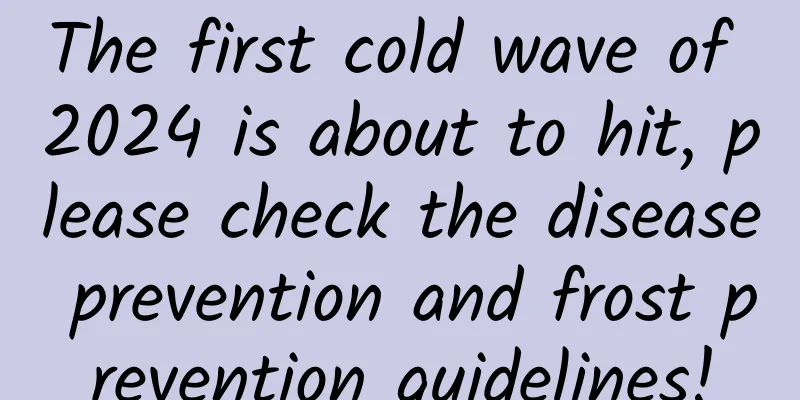Being frightened by "paranormal phenomena" while in hospital? There may be a scientific explanation

|
Hospitals are familiar places to most people, but they are full of mystery. In addition to curing illnesses and saving lives, various "folk legends" are always spread here. There are even patients who claim that they have encountered "supernatural events" in the hospital, and they describe them vividly. Many doctors even use their "personal experiences" as after-dinner talk, adding a thicker color to this mysterious fog. Is it just hearsay or is it true? In fact, the descriptions of the witnesses may not be false, but they are not as psychedelic as described in the legend, because these phenomena can be explained by medical knowledge. Tuchong Creative 01 Listen to the ICU doctor tell the seemingly fantastic story When I was chatting with a colleague who works in the ICU (Intensive Care Unit), I heard him talk about two "supernatural events" he had encountered: 1. One night, a patient who was hospitalized for cardiogenic shock sat on the bed in a daze. Due to his critical condition, the patient was intubated as soon as he was admitted to the hospital, and the tracheal tube was just removed a day ago. It was late at night and no one was around, but the patient kept looking at the end of his bed, mumbling in his mouth, as if he was chatting with someone. This scene scared the nurse on duty and quickly called the doctor! As a result, the doctor just laughed and said, "You can spend more time chatting with him when you have time. He will get better faster." 2. During the ward rounds one morning, a patient asked the attending physician: "When I was half asleep last night, why did I feel so many strange people coming in and out of the ICU?" The nurse who was accompanying the ward rounds was startled and whispered in the doctor's ear: "Last night, there was indeed a patient with sudden cardiac arrest who could not be rescued..." The doctor glanced at the nurse and said to the patient with a smile: "Let's not think about it anymore. Everything will be fine once we are transferred to the general ward." ………… Tuchong Creative It sounds very mysterious, but don't be too imaginative, this is actually "ICU syndrome" at work! From a professional perspective, we prefer to use the word "delirium". 02 What is ICU syndrome? ICU syndrome refers to a clinical syndrome characterized by mental disorders and other abnormal manifestations in critically ill patients during ICU monitoring. Patients often experience delirium, auditory and visual hallucinations, abnormal behavior, confusion, etc. These so-called "supernatural events" seem to be experienced by patients themselves, and may appear vivid in terms of vision, feeling, and even touch, but these are just abnormal reactions of body functions. Tuchong Creative 03 The reasons for its formation are a combination of favorable conditions, favorable conditions and favorable people. Severely ill patients admitted to the ICU not only suffer severe physical trauma, but also great mental stress. In addition to the special environment and drug treatment in the ICU, these will cause many patients to experience the phenomenon of "ICU syndrome". Depending on the specific situation of each person, the incidence rate ranges from 20% to 80%! 1. Personal factors Because some patients suffer from sudden illness and lack sufficient psychological preparation, they tend to exaggerate their condition or even think that it is life-threatening, thus generating a strong sense of fear and threat. This is especially true for introverted patients or those with a history of mental illness or cerebrovascular disease. 2. Treatment factors Severely ill patients will receive more complex treatment in the ICU, such as hormones, benzodiazepines (literature confirms that other sedatives can also cause delirium, so analgesics and sedatives should be used regularly), and theophylline drugs, all of which may cause mental symptoms; anti-infective drugs such as moxifloxacin will have varying degrees of mental side effects on the elderly. Especially for endotracheal intubation, the incidence of ICU syndrome in patients receiving mechanical ventilation can be as high as 50%-80%! Tuchong Creative 3. Environmental factors Patients in the ICU cannot see their family members for a long time, and the lights in the closed ward are brightly on 24 hours a day. In addition, medical staff are busy coming in and out for work. The surrounding monitoring and treatment equipment make long-term, monotonous noise and even alarm sounds, especially when seeing the rescue and death of other patients in the same ward, it is more likely to make people have psychological reactions such as loneliness, helplessness, fear, tension and anxiety, thereby inducing the occurrence of this syndrome. 04 Manifestations of ICU syndrome The manifestations of ICU syndrome are diverse, ranging from mental awareness to limb movements, and to uninformed outsiders, it is indeed easy to associate them with "supernatural events." 1. Delirium: the most common, such as hallucinations, auditory hallucinations, speech disorder, and some patients even describe themselves as floating in the air; 2. Abnormal behavior: such as gesticulating, shouting, or even uncontrolled tearing, hitting, and scolding; Tuchong Creative 3. Confusion of consciousness and thinking: symptoms such as delusions, fragmented thinking, and irrelevant answers; 4. Other systemic symptoms, such as fatigue, insomnia, body aches, diarrhea, constipation, abnormal skin sensation, etc. 05 How is ICU syndrome treated? Mild ICU syndrome generally does not cause organic damage to the body. It often returns to normal after leaving the ICU environment, such as being transferred to a general ward or being discharged from the hospital, and returning to a relatively normal life/work state. As the patient's mind relaxes and gradually resumes a normal routine, the patient can return to normal. In addition to the ICU, some patients in general wards may also show symptoms of this syndrome. At this time, doctors and family members need to give patients more communication and care to relieve their tension and help them relax. Chatting, listening to music, and appropriate psychological hints can all play a very significant positive role. Tuchong Creative More severe ICU syndrome may cause serious consequences, reduce the quality of life and work ability, and even increase the mortality rate of patients after discharge, requiring early, formal psychological, behavioral and drug intervention treatment. Author | Zhang Jianbo, attending physician of the Department of Cardiology, Cangzhou Central Hospital Review | Yuan Hongxun, deputy chief physician, Department of Critical Care Medicine, Peking University International Hospital This article is produced by the "Science Rumor Refutation Platform" (ID: Science_Facts). Please indicate the source when reprinting. The pictures in this article are from the copyright gallery and are not authorized for reproduction. |
<<: "Rabbits are so cute, how can we eat them!!" Australians want to cry after hearing this...
>>: Why do you feel numb after squatting for a long time?
Recommend
Former Tencent Data Director: The basic APP data analysis system that operators must master
Introduction: In Internet companies, any APP must...
Anemia, what are the misunderstandings about iron supplementation
Iron is an important essential trace element for ...
A brief history of glasses: What did the ancients do if they were nearsighted?
Zhao Xigu of the Southern Song Dynasty wrote in h...
It turns out that these fruits and nuts we often eat grow like this!
In our daily lives, we eat a lot of fruits and nu...
New food regulations are coming! It concerns everyone. Read the labels like this when buying things in the future →
On March 27, 2025, the National Health Commission...
How to warm up for event operation and promotion?
A complete event includes four links: preliminary...
A collection of brand New Year's Eve cases, Durex's classics are hard to surpass!
2015 has passed and 2016 has begun. The feeling o...
Three-level strategy for attracting new customers at low cost in the education industry
In this era when traffic is becoming more and mor...
Experiments to ignite user growth: A/B testing best practices
In order to achieve scientific growth in the seco...
The Land of Russia and Ukraine - A Place Full of "Smiling Faces"
In 1888, Gauguin brought Van Gogh a yellow linen ...
For copying and emulating websites, emlog is a very useful website emulation toolbox!
A very useful website emulation tool. It can emul...
Mini Program Operation and Promotion Strategy
In my opinion, mini program operation includes th...
Taobao operation from entry to mastery in 25 days
This course is specially prepared for friends who...
Watching live broadcasts of internet celebrities earns millions of tips, while paying 1 yuan for knowledge-based self-media, why is the difference so huge?
Recently, another anchor of Meipai set a record f...
Ziyang Mini Program Investment Company, how much does the paper product mini program cost?
What is the investment cost of Ziyang Paper Produ...









